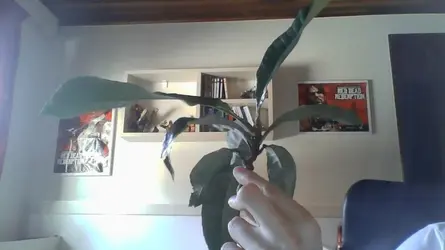Hello. I have a Loquat tree in my house, and I'm wondering If I can give the leafs for my pigs to chew on. I recently ran out of hay, and no pet shop in the city has hay for sale until they contact the merchant again. They said next week they'll have it. It's a very small city.
But in the meantime, I'm looking for things that they can chew on that aren't bad for their health.
So loquat fruits are good for them, but I haven't found anything at all about loquat leafs. So, is it safe? Can Porca chew it with no worries?
 This is the leaf
This is the leaf
But in the meantime, I'm looking for things that they can chew on that aren't bad for their health.
So loquat fruits are good for them, but I haven't found anything at all about loquat leafs. So, is it safe? Can Porca chew it with no worries?
 This is the leaf
This is the leaf